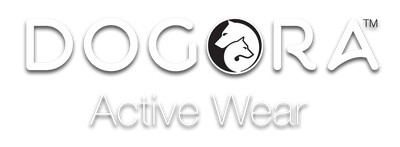Essential First Aid That Could Save Your Dog’s Life – Part Two

As an owner, loyal companion, and family member to our best friends, we are their first responders prior to reaching the emergency clinic or animal hospital. This is the second of a series of posts that will make you better prepared to handle many emergency situations that you might encounter with your dog.
How to Make Your Canine First Aid Kit
|
First Aid Supply |
Why Include It? |
|
Phone numbers for your Veterinarian, local Clinic and two closest 24-hour Emergency Animal Hospitals |
Save time and have these numbers handy before you need them. |
|
Animal Poison Control Centre Telephone Number |
Because of their size relative to humans, toxicity levels can be very low in pets. It’s crucial that you act immediately. Animal Poison Control Centre – (1-888) 426-4435 24hr line Pet Poison Hotline – (800) 213-6680 |
|
Muzzle or Anti-Bite Strap |
Be sure to not use if there is any throat/neck injury, vomiting or difficulty breathing. |
|
Leash |
Allows owner to control and reduce movement. |
|
Cut and Wound Care – Antiseptic (iodine), non-scented heavy sanitary pads, blunt scissors, Antimicrobial Hydrogel |
Before doing anything, it’s important to clean the wound with an antiseptic and use non-scented heavy duty sanitary pads to apply pressure to large lacerations. |
|
Post Wound Care – Gauze pads/stretchable, Non-stick bandages or strips of sanitized cloth and Adhesive tape. |
The gauze is used for wrapping the wound and is placed over the non-stick bandages which are used to protect the wound and control bleeding. Bandages are then held in place by adhesive tape. Be sure not to wrap too tightly. Change bandage regularly to keep clean and avoid bacteria. |
|
Milk of Magnesia – Vet Approved activated Charcoal |
To absorb poison. Be sure to contact your vet or poison control before inducing vomit or treating your pet. |
|
Oral Syringe |
Can be used to administer water and food (Mix wet food with water) when your pet is rejecting hard food and water. |
|
Saline Eye Wash |
Used to help flush out any foreign objects or irritating substances in eye. |
|
Hydrogen Peroxide (3%) |
To induce vomiting. Be sure to contact your vet or poison control centre before inducing vomit or treating your dog. |
|
Digital Thermometer |
To check pet temperature. Temperature must be taken rectally, not via mouth. |
|
Tweezers/At Home Tic Remover |
Tweezers - To remove any small slivers, bush/flower prick or any foreign object stuck superficially in skin. Tick Remover- To remove ticks from dogs’ skin prior to going to your vet to have tick tested for any pathogens. Ticks become active only after a couple of days at +4℃/39F temperature.
|
|
Styptic Powder |
Most common and efficient way to stop a dog’s nail from bleeding. |
|
Stretcher |
Helps stabilize the animal, preventing further injury, and makes carrying quick and efficient. While transporting, be sure to keep your pet in a crate or small area to reduce further injury. |
How To Handle Your Injured Pet
When handling an injured pet, it’s imperative to understand they can be in a lot of pain. They may be confused and most likely scared. You need to assess the situation and sometimes a muzzle may be needed to avoid getting bitten or scratched. However, be sure that a muzzle is not placed on if your pet is suffering from any throat/neck injury, is vomiting or having difficulty breathing.
Before moving your pet, be sure to stabilize their injuries with splints or bandages. While transporting your pet, be sure to keep them confined to a small area to reduce the risk of additional injury. For larger dogs, you can use a blanket, dog bed, house rug or sled to act as a stretcher. Be sure to notify your veterinarian before you move your pet so they can be ready when you arrive.
Next week, we’ll look at How to Clean and Bandage Your Dog’s Wounds.
Nicholas Mozas is Founder and CEO of DOGORA. He is a graduate of the University of Guelph in Biological Science and holds an M.Sc. in Neutragenomics. Nicholas managed an Animal Hospital after graduation, gaining a better understanding of pets’ and owners’ needs. Find out more at www.dogora.ca.
Feel free to forward this blog post to your dog owner friends to enjoy!

